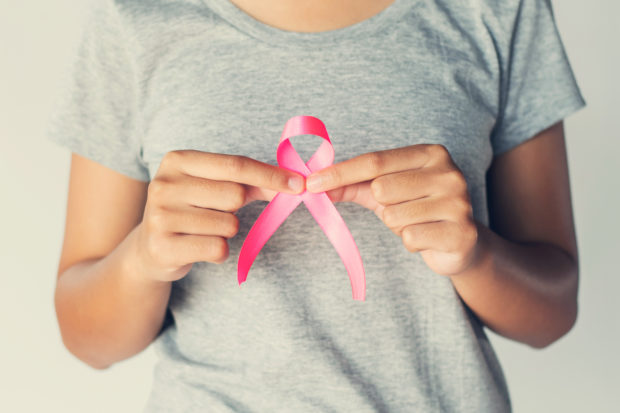There Might Be A Vaccine Available Soon To Prevent The Most Lethal Form Of Breast Cancer

Cleveland, Ohio. The Cleveland Clinic has launched a groundbreaking vaccine study dedicated to preventing triple-negative breast cancer.
Triple-negative breast cancer is “a kind of breast cancer that does not have any of the receptors that are commonly found in breast cancer.” These three receptors consist of estrogen, progesterone, and a protein called human epidermal growth factor.
According to the CDC, “If your cancer has any of these three locks [receptors], doctors have a few keys (like hormone therapy or other drugs) they can use to help destroy the cancer cells.”
The issue with confronting triple-negative breast cancer, then, is that there are zero “locks” or receptors present.
So, doctors are left with fewer treatment options besides chemotherapy. While chemotherapy can be successful, this treatment is often accompanied by many adverse side effects such as hair loss, nausea, and tiredness. These factors make triple-negative breast cancer the “most aggressive and lethal form of the disease.”
Even though triple-negative breast cancer only represents twelve to fifteen percent of all breast cancers, this form of the disease “…accounts for a disproportionately higher percentage of breast cancer deaths and has a higher rate of recurrence.”
Based on research from Cleveland Clinic’s Lerner Research Institute, the new clinical trial seeks to eventually prevent triple-negative breast cancer before it can even form. The vaccine study has also already been approved by the U.S. Food and Drug Administration.
The first phase of the trial is “designed to determine the maximum tolerated dose of the vaccine in patients with early-stage triple-negative breast cancer and to characterize and optimize the body’s immune response.”
Pre-clinical research showed that “activating the immune system was safe and effective in preventing breast tumors in mice.”

lovelyday12 – stock.adobe.com
Sign up for Chip Chick’s newsletter and get stories like this delivered to your inbox.
After the first phase, researchers anticipate that a second trial will include “healthy, cancer-free women at high risk for developing breast cancer who have decided to undergo voluntary bilateral mastectomy to lower their risk.”
Vincent Tuohy, Ph.D., who invented the vaccine, said, “This vaccine approach represents a potential new way to control breast cancer.”
He also added that, “This vaccine strategy has the potential to be applied to other tumor types.” Other potential applications could include ovarian and endometrial cancer prevention.
The U.S. Department of Defense is currently funding the study.
It will include, “Eighteen to twenty-four patients who have already completed treatment for early-stage triple-negative breast cancer within the past three years and are currently tumor-free but at high risk for recurrence.”
Throughout the trial, patients will receive three vaccinations that are two weeks apart. The study’s anticipated completion date is September of 2022.
“If successful, these vaccines have the potential to transform the way we control adult-onset cancers and enhance life expectancy in a manner similar to the impact that the childhood vaccination program has had,” Tuohy said.
More About:Human Interest





